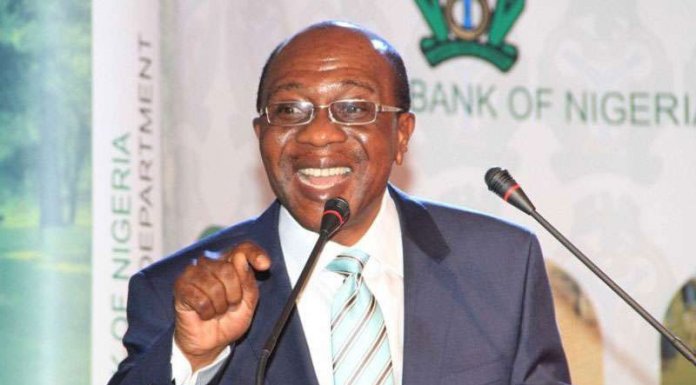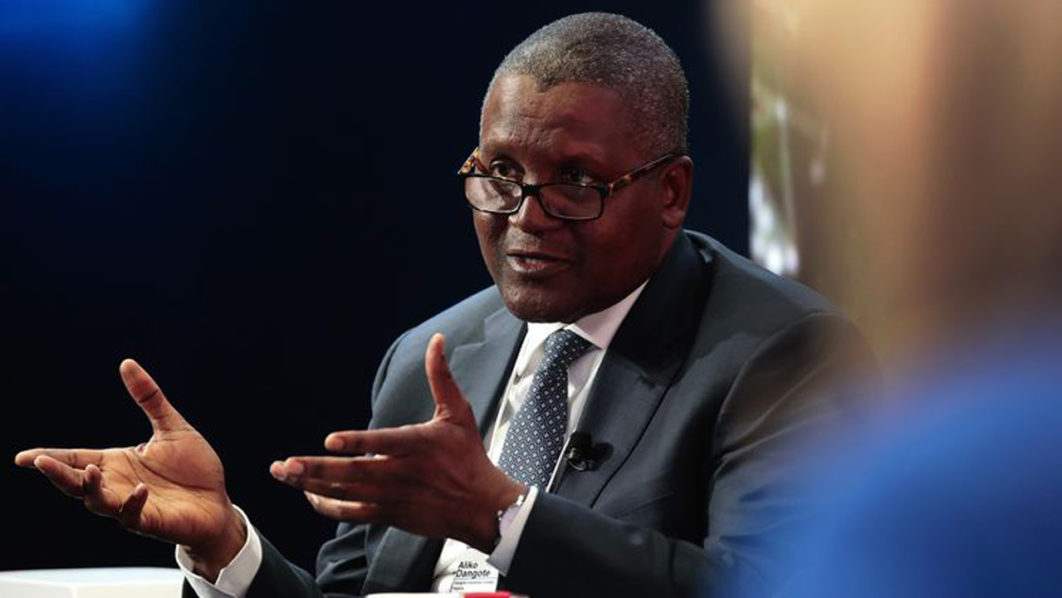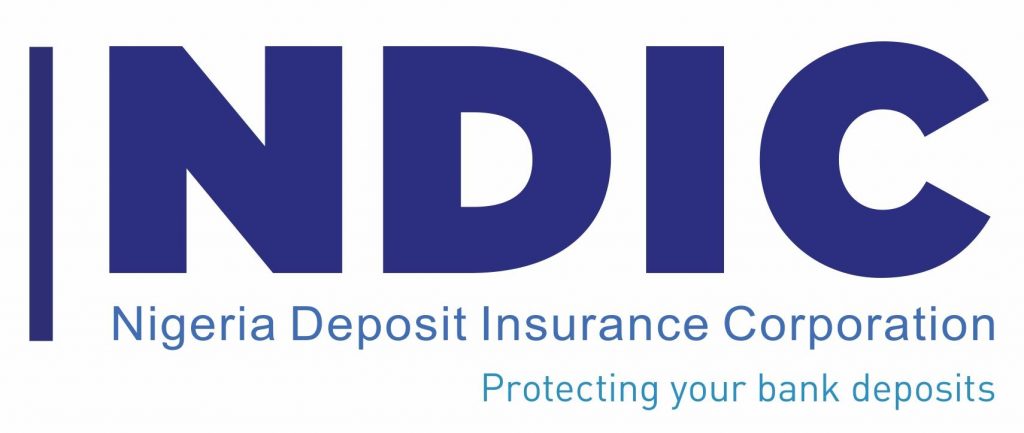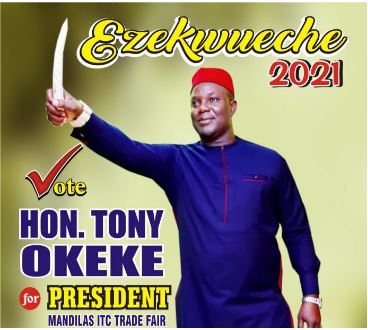This may be shocking to many, but the truth is that a larger section of public finance experts are still baffled on why the Central bank of Nigeria (CBN) Governor, Mr Godwin Emefiele was retained and given another term of five years.
The key argument of the experts is rooted on Emefiele’s management and protection style of the naira since his inception that tend to suggest one way traffic of momentary dollar intervention. Throughout 2019, CBN’s intervention rose to over $5bn with the main challenge still remaining visible and threatening.
Besides, the way and manner he has been ‘dashing’ out taxpayers’ monies in the name of Anchor Borrowers programme (ABP) to apparently unprofiled farmers mainly in parts of the North for unstructured agro-revolution that has no roots in research and modernism.
The recent increase in banks’ Cash Reserve Ratio (CRR) by the Central Bank of Nigeria (CBN) to 27.5 percent may frustrate the drive by the apex bank to increase credit allocation and stimulate growth in the real sector.
Bismarck Rewane, Chief Executive Officer, Financial Derivatives Company (FDC) stated this in his January 2020 Lagos Business School (LBS) Breakfast session themed: “Adapt or Perish – Alice Hills: It is not just about Sustainability but Economic Reality”, describing the move as apparent contradictions in monetary policy.
In the last few months, trouble has started emerging on recovering the multibillion naira unsecuritised ABP’s loans to known and unknown farmers.
Latest report showed that the apex bank is already dragging over 70,000 farmers who received APB loan facilities and failed to show any sign of repayment.
The same scenario is playing out in several states in the north and the Federal Government has kept mute on the challenges of recovering the over N500bn ABP loan.
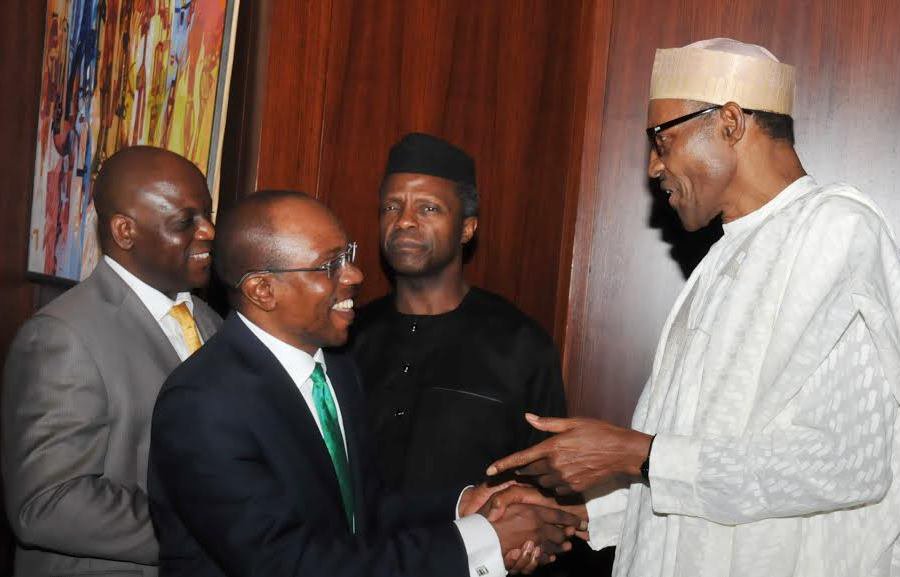
Analysts had continued to query the rationale upon which a whole CBN relied upon to give farmers unsecuritised loans directly to farmers without the involvement of commercial banks who would have done due diligence and KYC to sieve away ghost and political farmers.
Only recently, the apex bank has continued its spree of dollar intervention to protect the naira. About $2.5m was recently pumped into the forex market all in the name of deepening life support against the impending free-fall of naira.
Besides, CBN seems not aware that periodic interventions coupled with weak production sector is weighing down the nation’s foreign reserves which remains the key indicators regularly considered by any credible foreign investors to put his money on the Nigerian table.
Today, external reserves depletion has risen to $37.66bn and nobody knows if there is any particular threshold set for red flag to be raised on the economy.
 Unfortunately, experts say the populist oil money management is facing serious crisis now the crude price is seriously under threat. Brent crude remains below 2020 budget benchmark of $57 at $54.11bpd and the scenario will continue to pose danger for the economy including risks of falling back to recession.
Unfortunately, experts say the populist oil money management is facing serious crisis now the crude price is seriously under threat. Brent crude remains below 2020 budget benchmark of $57 at $54.11bpd and the scenario will continue to pose danger for the economy including risks of falling back to recession.
Observers say time has come for the apex bank to really thing outside the box ahead of the possible policy move by OPEC to cut production by 600,000bpd very soon.
Besides, shouldn’t somebody inform the apex bank to convince the federal Government to reopen its land borders so that the efforts of surviving production firms in the country can gain oxygen from ECOWAS market even as many whose products are mainly consumed by the West coast have gone under.
No doubt, latest statistics show that Nigerian economy is still fragile and hovers within the periphery limits of recession.
Economy growing only at 2% as against jumping population growth and inclusive growth with skewed wealth distribution is Nigeria’s undoing especially in this administration.
The current inflationary pressure requires contractionary fiscal policy, but the impacts of new VAT regime as a measure can only be effective when the inflation is caused by an excess supply of money.
But Nigeria’s inflation is largely cost-push, which could be best tackled by addressing the supply factors chief of which are defective market structure, exchange rate volatility and infrastructure. The government will achieve a better result by addressing these inadequacies, which however require more thinking.
When economy bleeds like Nigeria’s currently does, what is required are expansionary tactics that increase consumption, production and increase jobs. In fact, this is the thinking that has made quantitative easing a fanciful economic theory despite its tendency towards inflation.
 Business Hilights recalls that former US President Barack Obama literally “dashed” Americans money via his famous stimulus package to buy back a booming economy when he assumed office in 2009.
Business Hilights recalls that former US President Barack Obama literally “dashed” Americans money via his famous stimulus package to buy back a booming economy when he assumed office in 2009.
Obama’s decision then, sure, had vagaries of hiccups, but it did bail an ailing US economy. This is the thinking when an economy contracts. Tightening consumption with higher taxes especially the new VAT regime and reforms coming from the latest Finance Act are not in any way, a credible solution to fixing a bleeding economy like Nigeria, the population giant of Africa.

